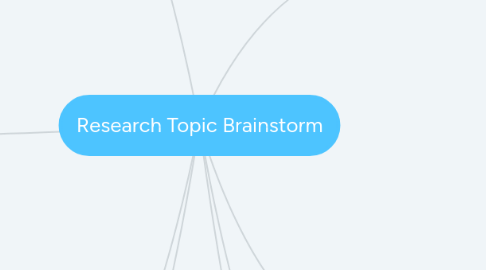
1. Obesity
1.1. Hormones
1.1.1. Are testosterone levels affected in men who have been obese for 3 or more years vs men who are within a healthy weight range?
1.2. Mental Health
1.2.1. Are there higher rates of mental health illness among those are who obese, and have been obese for more then 3 years,vs those are a healthy weight?
2. Dietary Sugar
2.1. influence on hormones
2.2. influence on insulin production/resistance
2.3. influence on the microbiome of gut
2.3.1. Sugar is digested by small intestine, with overflow going to liver?
2.3.2. Sugar is reaching the large intestine (micro-biome) , is this supposed to happen?
2.3.3. Do individuals who routinely consume large amounts of sugar over time as part of their daily diet have more reaching their large intestine thus altering the micro-biome of the gut?
2.4. influence on developing child's brain
2.5. Influence on levels of SHBG
2.6. Obesity in america
2.7. influence on satiety
2.7.1. Refined sugars are broken down faster causing a lack of "fullness" after meal
2.7.2. fiber amounts on digestion time and satiety
2.7.3. When an individual consumes a set amount of calories consisting mainly of refined sugars do they experience less satiety immediately after the meal then if the meal consisted of fats mostly?
2.8. Time of consumption
2.9. Fasting vs recent meal
2.9.1. Influence on where digestion occurs? small intestine vs liver
2.9.2. Does the process of digestion of sugar vary in individuals who are eating from a fasted state vs non-fasted?
3. Diabetes
3.1. Carbohydrates
3.2. Lipids
4. Mental Health
4.1. Depression
4.1.1. Is the sexual function of males who suffer from depression different then those who have no previously diagnosed depression?
5. Hypertension
5.1. Dietary cholesterol
5.2. Dietary Sodium
5.2.1. Is intake of sodium handled differently across different populations, geographical or age
5.2.1.1. ie. INTERSALT study
5.2.1.2. Population - adult men, intervention diet of 4000mg or more sodium, comparasion - diet of 1500mg sodium or less, outcome BP over 1 year
5.2.1.2.1. At first this idea seems very feasible, simply to have two different study groups with set limits on diet and monitor their BP over the course of a year. But it is not quite as simple as that, since the controls would have to be far and wide to attempt and isolate the effects of sodium in particular on BP. Both groups would have to have the same level of exercise, water intake, and same diet besides the actual sodium used in preparation. Also stress levels and occupation would want to be taken into consideration.
5.2.1.3. "Feasible" I believe a question posed around the correlation between sodium intake and BP over time could be achieved through the use of various database's.
5.3. Dietary Lipids
5.3.1. Do individuals who have had a higher fat intake over the course of several years in their diet have higher blood pressure then those who do not?
5.4. Dietary Carbohydrates
5.5. Sedentary lifestyle
5.5.1. How long and what caliber of physical activity is needed to reduce an individual with HTN's BP by 10 pts?
6. Microbiome of the Gut
6.1. geographic location
6.2. age
6.3. sex
6.4. Obese vs lean individuals
6.4.1. Energy harvesting
6.4.2. Energy Use
6.4.3. Energy storage
6.4.4. Do individuals who have been obese for 3 or more years process incoming nutrients differently then those individuals who are within a healthy weight range?

